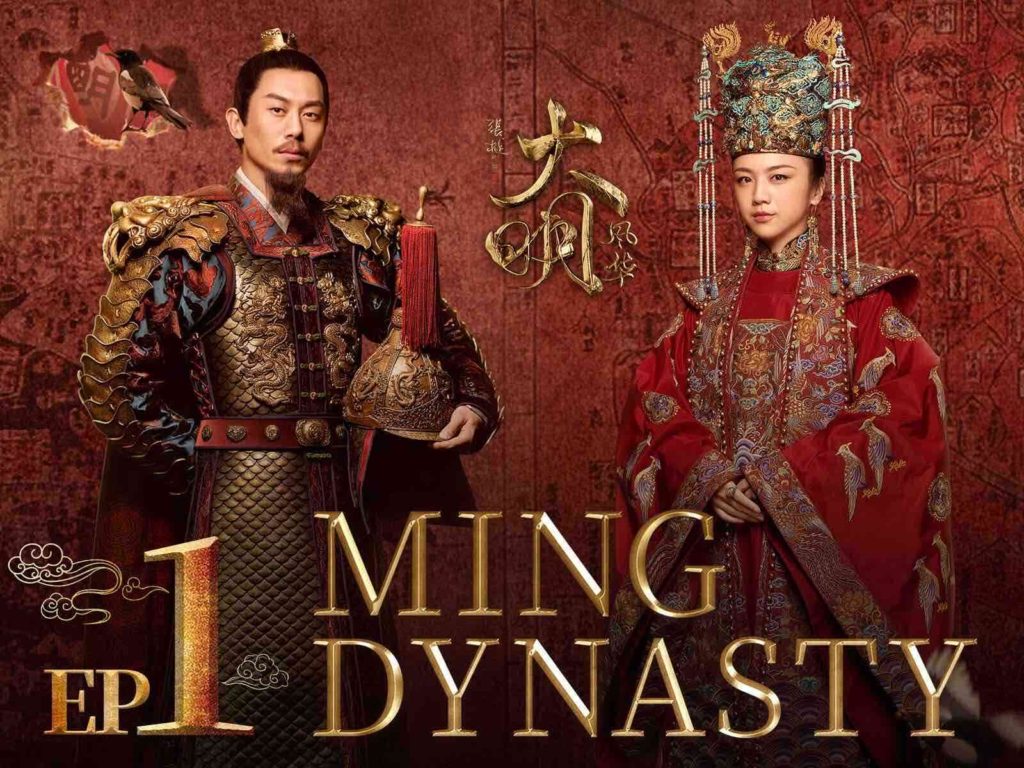
Ming Dynasty Drama (Chinese: 大明风华) has received a very high following since its release. It is set against the backdrop of Jingnan Campaign and depicts the story of empress ming Sun Ruowei’s transformation from commoner to the empress of the ming, and renouncing personal hatred to save the Ming Dynasty many times over.
In addition to a cast that includes the most famous Chinese actors Tang Wei, Li Weidong, Zhu Yawen, and Zhang Yixing, Ming Dynasty Drama adopts a completely different way of filming ancient Chinese historical drama was used.
It avoids the heaviness and sadness of history, dropping the camera angle to the Zhu family. Traditional Chinese family culture is presented through the interesting daily interactions between the generations of the Zhu family.
From an artistic point of view, Ming Dynasty Drama is very successful. However, the screenwriters did not follow history exactly because of the need of the plot.
On the contrary, if you are very familiar with Ming Dynasty history, you will find that there are many images that do not match the real history.
So, if you are a history buff trying to understand Ming history by watching Chinese historical drama, I am strongly opposed to it. This is the main reason why I don’t recommend Ming Dynasty Drama. As a history buff I will point out the historical errors about it.
The Time of Jingqing’s Death
There was a civil war between Jianwen Emperor and Zhudi over the battle for the throne from 1399 to 1402. Eventually, Zhudi triumphed and successfully captured Nanjing, the capital of the Ming Dynasty. This is the historical background to the beginning of Ming Dynasty Drama.
In the first episode, a scene is described of Zhudi eliminating his opponents. In the midst of this frightening image comes a clip of a father named Jingqing entrusting his two daughters to be raised by a friend.
Afterward, his oldest daughter was adopted by a friend, and his youngest daughter was rescued by Zhu Zhanji. While such a plot is particularly touching, what I want to say is that this scene is fictional.
According to Ming Dynasty history, Jing Qing was spared the battle of Jingnan Campaign because he was respected by Zhudi. Although he was ostensibly subservient to Yongle Emperor, he had actually been looking for the right time to assassinate Yongle Emperor.
Finally, Jingqing took action in 1403. Unfortunately, the assassination ended in failure. Analyzing from real historical records, Jingqing died in 1403 instead of 1402 as narrated in the first episode.
Sun Ruowei and Hu Shanxiang Are Not Sisters
In this drama, Sun Ruowei and Hu Shanxiang are the daughters of Jing Qing. To be clear, these two women do have a historical identity, but their relationship is an artistic fiction.
Sun Ruowei was elected to the palace at a very young age, and she was made a noble consort after Zhu Zhanji’s accession to the throne, .
Hu Shanxiang was the daughter of Hu Rong, an official of the embroidered uniform guard, who was known for her virtues and was chosen as a consort of Zhu Zhanji.
After Zhu Zhanji became the fifth emperor of the Ming Dynasty, Hu Shanxiang was made empress ming. But after only three years as queen, she was forced to give way to Sun.
Therefore, not only were Sun Ruowei and Hu Shanxiang not sisters, but they also did not have any relationship with Jing Qing. On top of that, they are Zhu Zhanji’s women. In a way, there is a rivalry between them about the emperor.
The Portuguese Who Shouldn’t Be There
The Great Age of Navigation had not yet arrived in the early Ming Dynasty. In 1488, the Portuguese Dias reached the southernmost tip of Africa, the Cape of Good Hope, for the first time, and 10 years later his compatriot Da Gama opened a new route to India.
The Portuguese arrived in China in 1514, nearly a century after the death of Yongle emperor. The Portuguese who appear in the play are more than 100 years ahead of reality.
In Conclusion
Many people think that Ming Dynasty Drama is a wonderful Chinese historical drama because they can learn more about the Ming Dynasty.
However, TV dramas tend to falsify history for the sake of ratings, leading viewers to develop a false perception of the Ming Dynasty.
As a lover of Ming history, I would recommend still getting to know the facts of Ming Dynasty through books rather than TV series. Otherwise, you won’t get an A on the history exam.




